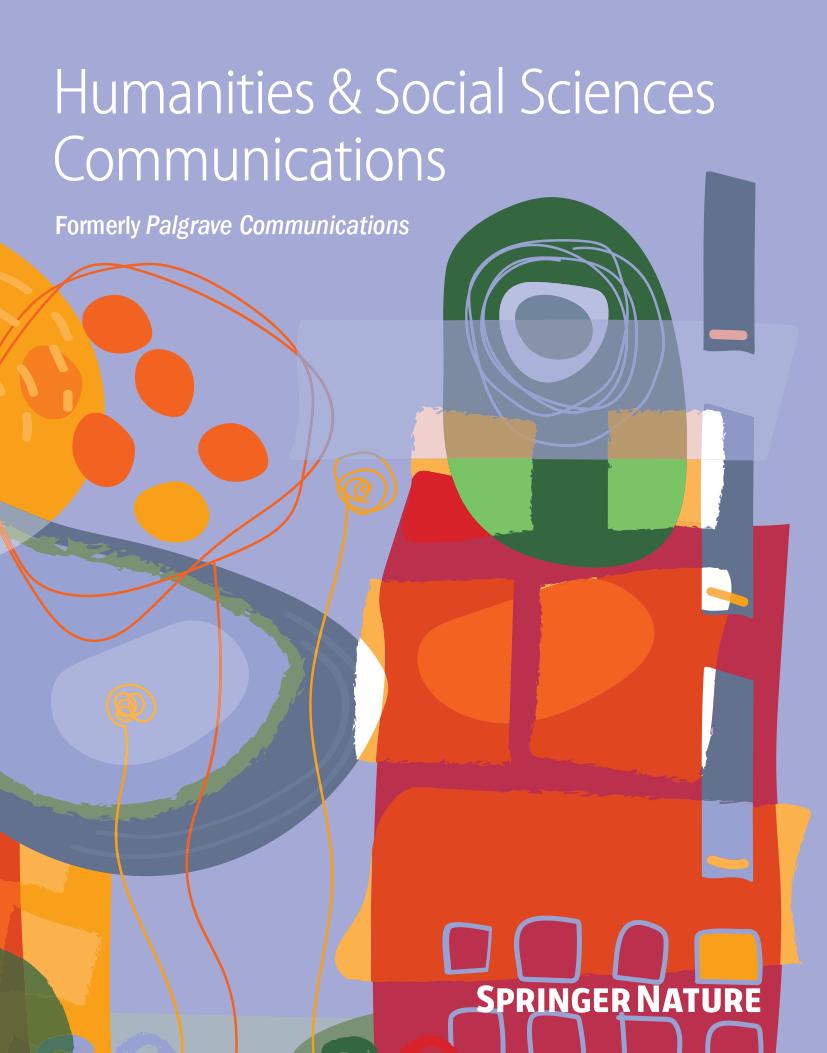会计学院吴昊旻教授以通讯作者身份在Nature子刊发表论文
信息来源:
作者:
发布时间:2023年11月09日
会计学院吴昊旻教授以通讯作者身份与西南财经大学金融学院刘铭博士、美国罗德岛大学商学院林秉璇教授、日本滋贺大学经济研究院张璟霞博士,在Nature旗下唯一的人文社会科学子刊Humanities and Social Sciences Communications发表论文“A small global village: the effects of collectivist, tight and Confucian cultures on the spread of COVID-19”。
期刊介绍
Humanities & Social Sciences Communications(HSSC)是Nature旗下唯一面向人文社会科学的子刊,致力于出版人文、社会与行为科学等综合领域的高水平研究,被SSCI、A&HCI共同索引,在JCR和JCI报告中的人文领域、社会科学领域分区均为Q1,在全球人文社科领域具有重要影响力。HSSC期刊引用指数(Journal Citation Indicator)为4.83,在人文等多学科领域的395种期刊中排名第3,在社会科学等多学科领域的265种期刊中排名第1。

文章内容
东西方文化差异是疫情防控效果的一个可信解释么?尽管先前的研究强调了与新冠肺炎传播相关的几个重要因素以及减少传播的策略,但很少有研究关注可能影响其传播程度的社会和文化因素。文章从跨国/地区文化差异的角度考察新冠肺炎的传播及其影响因素,发现具有集体主义(collectivistic)、儒家或严格(限制)文化(Confucian or tight culture)的国家和地区的新冠肺炎传播率显著更低。文章在控制人口、年龄结构、人均GDP、以前的SARS发生率、吸烟率和宗教等因素后发现,集体主义得分每增加一个标准差,新冠肺炎病例每周增长率下降1.38%;更重要的是,在全国或地区封锁期间,文化对新冠肺炎传播及其死亡率的影响变得更强。考虑到这些结果,文章建议为有效应对新冠肺炎等类似疫情,各国政府应当实施公共卫生政策,并强调共同利益、个人责任、强大的文化规范和社区意识——因为这场疫情表明,人们都生活在一个小小的地球村内。
普遍性的思维定式及其行为选择或与共同期待(如健康、持续发展及和平诉求等)的显著偏差或背离等,须要从影响思维、意识及其行为的系统处即其所在的文化、传统或制度渊源上寻求深层解释。文章以实证会计研究的技术方法,结合制度变迁及社会心理等理论,对疫情影响下个体及其国家的行为习性或治理差异进行多维系统性溯源,揭示了“文化-制度-行为-结果”的嵌套效应及其社会性意义,从而彰显了东方经验和智慧在全球疫情防控乃至危机治理中的独特价值。
文章摘要(Abstract)
While previous studies have emphasised several important factors associated with the spread of COVID-19 and strategies to reduce transmission, few studies have focused on the social and cultural factors that may influence its spread. This study analyses the spread of COVID-19 from a cross-country/region cultural perspective and finds that countries and regions with a collectivistic, Confucian or tight (restrictive) culture experience a lower spread rate of COVID-19. The results are robust to controlling for several factors, including population, age structure, gross domestic product (GDP) per capita, previous SARS occurrence, smoking prevalence, and religion. A one standard deviation increase in the collectivism score is associated with a 1.38% reduction of the weekly growth rate of COVID-19 cases. More importantly, the effect of culture on the spread of COVID-19 becomes stronger during national or regional lockdowns. Corroborating these main results, supporting analyses find a significant effect of culture on national and regional COVID-19 death rates. These findings suggest that to manage the ongoing surges in COVID-19 outbreaks, governments should implement public health policies that emphasise the ideas of common interest, personal responsibility and strong cultural norms, and sense of community, as this pandemic has revealed that people all live together in a small global village.
文章信息
Ming Liu, Haomin Wu*, Bingxuan Lin, and Jingxia Zhang. A small global village: the effects of collectivist, tight and Confucian cultures on the spread of COVID-19. Humanities & Social Sciences Communications. (2023)10: 789 |https://doi.org/10.1057/s41599-023-02289-3.





